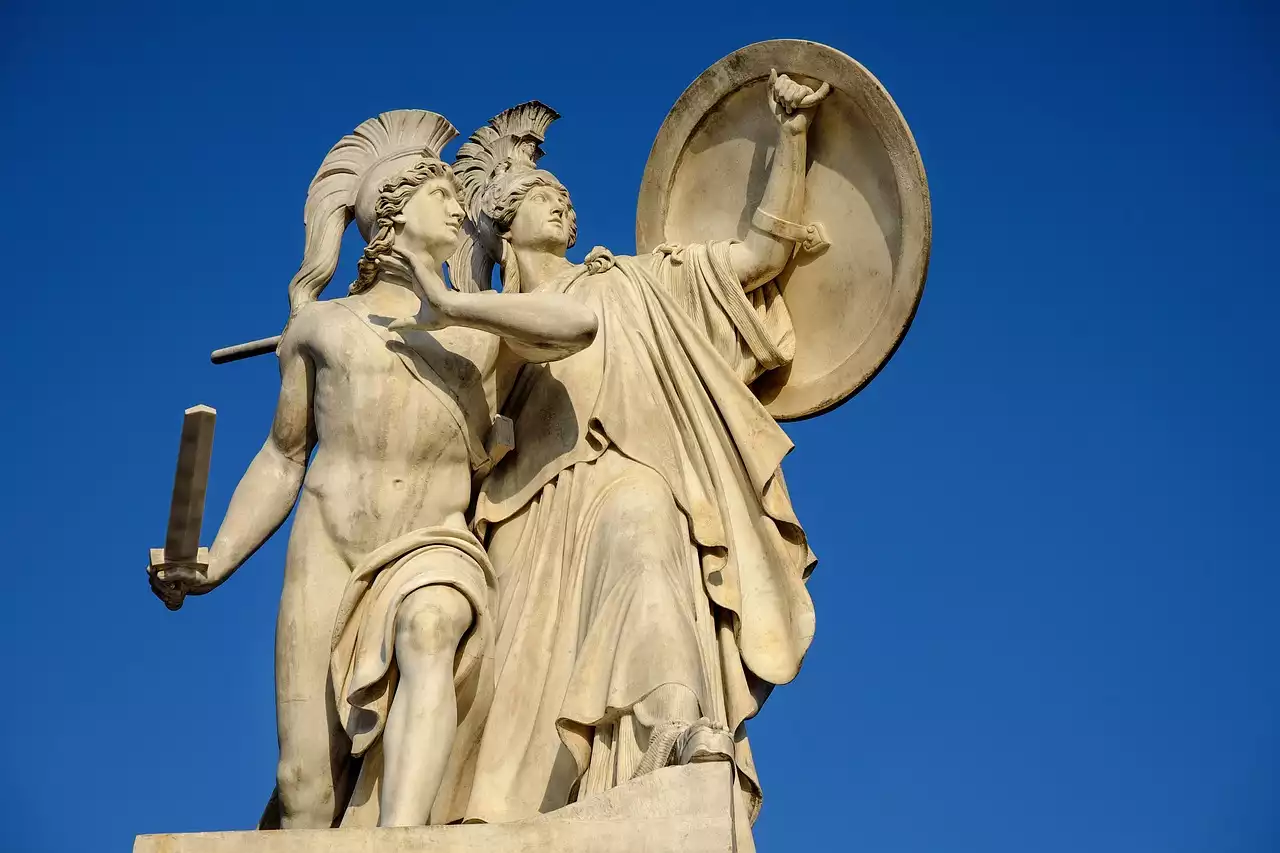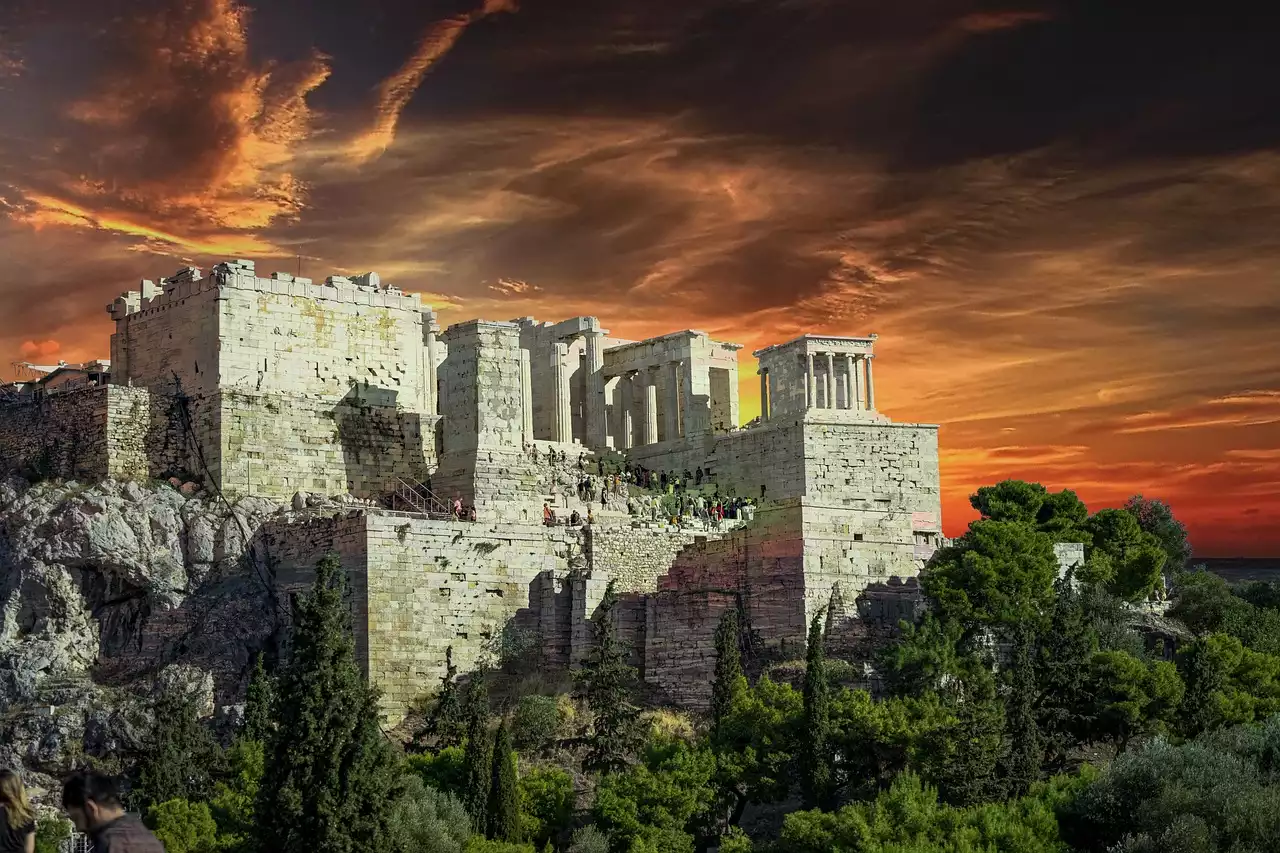The Bronze Age: Minoans and Mycenaeans
The Bronze Age marked the beginning of Greek history, characterized by the rise of two major civilizations - the Minoans and Mycenaeans. The Minoans, who inhabited the island of Crete, were known for their advanced culture and impressive architectural achievements. Their palaces, such as the famous Knossos, showcased intricate frescoes and sophisticated engineering. The Mycenaeans, on the other hand, were a warrior society that dominated mainland Greece. Their fortified cities, like Mycenae and Tiryns, were centers of power and wealth.
However, both civilizations ultimately succumbed to various factors, such as natural disasters and invasion. The decline of the Minoans is often attributed to the volcanic eruption on the island of Thera, which led to a series of tsunamis and disrupted their civilization. The Mycenaeans faced their downfall during the late Bronze Age collapse, a period of political unrest and economic decline.
The Dark Ages: Decline and Collapse
Following the collapse of the Mycenaean civilization, Greece entered a period known as the Dark Ages. This era was characterized by a decline in population, trade, and cultural development. Many of the once-thriving cities were abandoned, and the Greek people faced significant challenges.
During this time, the oral tradition of storytelling played a crucial role in preserving Greek mythology and history. Epic poems, such as the Iliad and the Odyssey, were composed and passed down from generation to generation. These tales provided insight into the values, beliefs, and struggles of the ancient Greeks.
The Archaic Period: Rise of City-States
The Archaic Period marked a significant turning point in Greek history, as it witnessed the emergence of city-states, known as polis. Each polis had its own government, laws, and cultural traditions. Athens and Sparta were two prominent city-states that played pivotal roles in shaping Greek history.
Athens, the birthplace of democracy, thrived under the leadership of statesman Solon and later, Cleisthenes. The Athenian democracy allowed citizens to participate in decision-making and laid the foundation for modern democratic systems. Sparta, on the other hand, was a militaristic society governed by strict laws and a unique social structure. The Spartan warriors, renowned for their discipline and bravery, played a crucial role in defending Greece against external threats.
The Classical Period: Age of Pericles and Athenian Democracy
The Classical Period is often considered the golden age of Greek history. It was during this time that Athens reached its peak under the leadership of Pericles. Under Pericles' guidance, Athens experienced a period of cultural and intellectual flourishing. The city-state became a center for arts, philosophy, and architecture.
During this period, the Parthenon, a temple dedicated to the goddess Athena, was constructed on the Acropolis. The Parthenon exemplified the classical Greek architectural style and remains an iconic symbol of ancient Greece. The playwrights Aeschylus, Sophocles, and Euripides produced timeless tragedies that explored the human condition and examined moral dilemmas.
The Hellenistic Period: Alexander the Great and the Spread of Greek Culture
The Hellenistic Period marked a time of significant expansion and cultural diffusion for the Greeks. It was during this era that Alexander the Great, a Macedonian king, embarked on his conquests, which led to the spread of Greek culture across vast territories. Alexander's empire stretched from Greece to Egypt and as far east as India.
The Hellenistic period saw the merging of Greek, Persian, Egyptian, and other Eastern cultures. This fusion resulted in a vibrant exchange of ideas, art, and knowledge. The Library of Alexandria, established in Egypt, became a renowned center of learning, housing a vast collection of texts from various civilizations.
Greek Influence on Western Civilization
The influence of ancient Greece on Western civilization cannot be overstated. Greek philosophy, literature, and art continue to shape our modern world. The works of philosophers like Socrates, Plato, and Aristotle laid the foundation for Western thought and ethics. The concept of democracy, born in Athens, remains a cornerstone of many contemporary societies.
Greek mythology and its pantheon of gods and goddesses have permeated popular culture, inspiring countless books, movies, and artwork. The Olympic Games, which originated in ancient Greece, continue to be celebrated as a symbol of international unity and athletic excellence.
Archaeological Discoveries and Excavations in Greece
Archaeological discoveries have played a vital role in unraveling the secrets of Greek history. Excavations in various parts of Greece have unearthed magnificent artifacts, revealing insights into the daily lives and beliefs of the ancient Greeks.
The discovery of the tomb of King Philip II of Macedon, father of Alexander the Great, shed light on the splendor and opulence of the Macedonian royal court. The excavation of the ancient city of Troy, immortalized in Homer's Iliad, confirmed the existence of a real city that was previously believed to be purely mythical.
Famous Greek Historians and Their Contributions
Greek historians have made significant contributions to the study and preservation of Greek history. Herodotus, often referred to as the "Father of History," chronicled the Persian Wars and provided valuable insights into the cultures and customs of various civilizations. Thucydides, known for his detailed account of the Peloponnesian War, emphasized the importance of accurate and impartial historical writing.
Xenophon, a student of Socrates, wrote historical works that documented the life and military campaigns of Cyrus the Great and the expedition of the Ten Thousand. These historians' works continue to serve as valuable resources for understanding the ancient world.
Conclusion: The Enduring Legacy of Greek History
As we conclude our journey through the timeless origins of Greek history, we recognize the enduring legacy left by this extraordinary civilization. From their contributions to democracy and philosophy to their architectural marvels and epic literature, the ancient Greeks continue to inspire and shape our world.
The lessons learned from their triumphs and failures, their myths and legends, offer invaluable insights into the human experience. By exploring the age-old mysteries of Greek history, we gain a deeper understanding of our own cultural heritage and the forces that have shaped our modern society.
Join us in celebrating the timeless origins of Greek history and embracing the enduring legacy of this remarkable civilization.
References: - Herodotus. "The Histories." - Thucydides. "The History of the Peloponnesian War." - Xenophon. "Anabasis."









